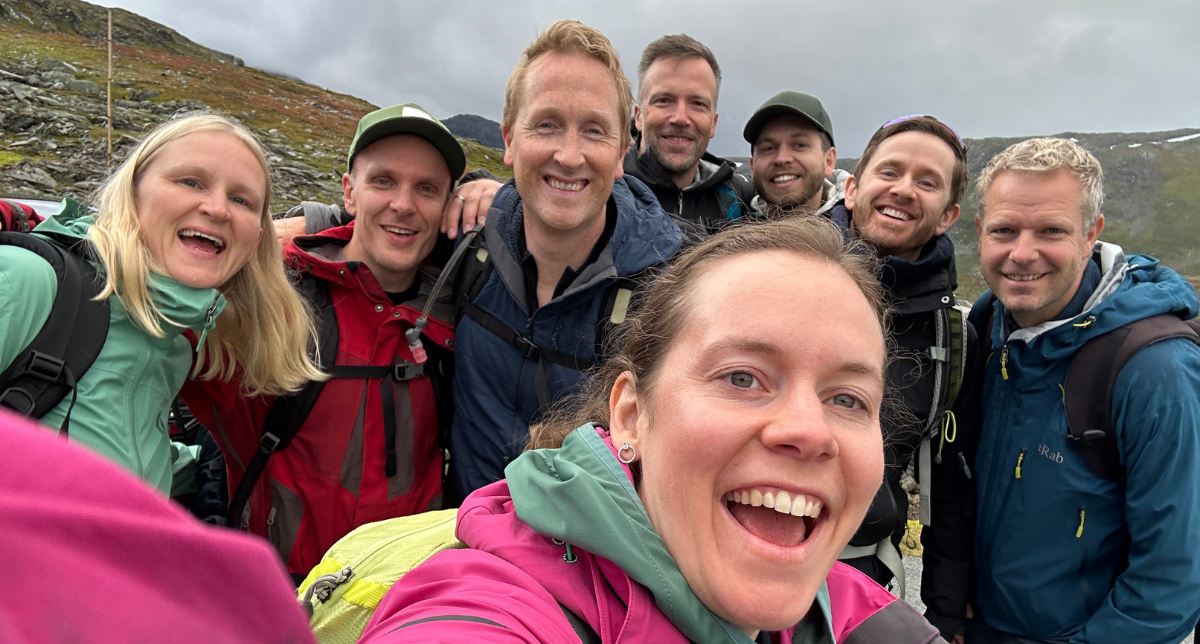The automotive industry is going through a massive transformation, one that will change not just how cars are made but also how they fit into our everyday lives. In a recent episode of "Future Says," Financial Times journalist Peter Campbell shared his thoughts on the forces driving these changes. He covered everything from the impact of geopolitics and new technology to the rise of electric vehicles (EVs) and the growing importance of software and AI in cars.
As one of the companies driving change in the automotive industry, we found Campbell's insights about the evolving landscape to be spot on. At Casi, we empower our customers—who include OEMs like Hyundai and Stellantis—to thrive in these tumultuous times. Understanding the trends shaping the future of mobility is key to helping our clients stay ahead of the curve.
The Automotive Industry: Where Geopolitics Meets Technology
Campbell kicked off the discussion by talking about how deeply the automotive industry is connected to global geopolitics. Trade wars and supply chain disruptions have only added to the challenges carmakers face as they shift toward electrification. This shift isn’t just about adopting new technology; it’s about completely rethinking what a car is in today’s world.
Major Industry Disruptions: Electrification, Self-Driving, and Connectivity
One of the key points Campbell emphasized was the multiple disruptions hitting the automotive sector all at once—electrification, self-driving technology, and increased connectivity. He made it clear that these aren’t just small changes; they’re fundamentally altering the industry. Transitioning from traditional engines to electric powertrains is complex enough, but add self-driving tech into the mix, and it’s clear the road ahead is challenging.
Campbell also touched on the personalities driving these changes, particularly Elon Musk of Tesla, who has become a major figure not just in the auto industry but also in space exploration and social media. While Tesla has set high standards, other carmakers, including newer startups, are finding it tough to live up to the hype.
New Players in the EV Market: Opportunities and Challenges
With the barriers to entry in the EV market lower than ever, we’re seeing a flood of new players, including Chinese companies and startups like Lucid. But Campbell cautioned that while it might be easier to enter the market, succeeding in it is a whole different story. The automotive industry is still incredibly capital-intensive, and many new entrants struggle with everything from product development to manufacturing and financing.
China’s leadership in battery technology is another critical area Campbell highlighted. Companies like Geely aren’t just leading in battery innovation; they’re also making major global investments, expanding their influence into well-known brands like Volvo and Lotus.
The Future of Automotive: Electric, Hydrogen, and What Lies Beyond
Looking to the future, Campbell predicted that electric vehicles will likely dominate the automotive market, though there’s still room for alternative fuels like hydrogen, especially in heavy-duty sectors like trucking. While many carmakers are heavily investing in batteries, the pace of EV adoption will differ across regions, influenced by factors like local power grids and affordability.
Decarbonization is another key focus for the industry. While electric vehicles are a big part of this, Campbell noted that carmakers are increasingly looking at the entire environmental impact, including the emissions involved in producing batteries and sourcing materials.
Software and AI: The New Battleground for Car Companies
As cars become more connected and autonomous, software is emerging as the next big challenge for OEMs. Campbell pointed out that while carmakers are starting to understand the importance of software, both in-car software and software that makes their vehicles more accessible for consumers. Many are finding it costly and difficult to attract the right talent. This challenge is leading to more partnerships with software experts—something Casi is well-equipped to support, especially in helping turn fleet data into actionable insights.
Autonomous vehicles were another big topic. Campbell acknowledged their potential to reduce accidents caused by human error, but he also highlighted the significant technical and regulatory hurdles that still need to be overcome. The path to full autonomy will be slow, especially in complex urban environments.
Direct-to-Consumer Relationships: A Strategic Shift
One of the most significant shifts Campbell discussed was the move toward direct-to-consumer relationships. OEMs are beginning to see the value in owning the customer relationship, which allows them to gather valuable data and offer more personalized services. However, this shift also brings new challenges, particularly in terms of succeeding with digital sales.
Final Thoughts: A Slow but Steady Revolution
In his closing remarks, Campbell offered a realistic yet hopeful view of the future. He predicted that while changes in the automotive industry might seem slow to consumers, the next decade will be one of the most transformative in its history. Electric vehicles will become more common, especially among wealthier consumers, but the industry will need to tackle significant challenges in software development and direct-to-consumer engagement.
Those who fail to adapt may not survive the coming decade. - Peter Campbell, Financial Times
At Casi, we’re committed to helping our customers navigate these changes, whether through our digital sales expertise, automated operations, or customer and asset management. The future of mobility is bright, but it will take careful planning and strong partnerships to make the most of it.
Watch the full interview here and reach out to Casi if you want to discuss the challenges your organization is facing. We’re here to help!













.avif)




.png)







